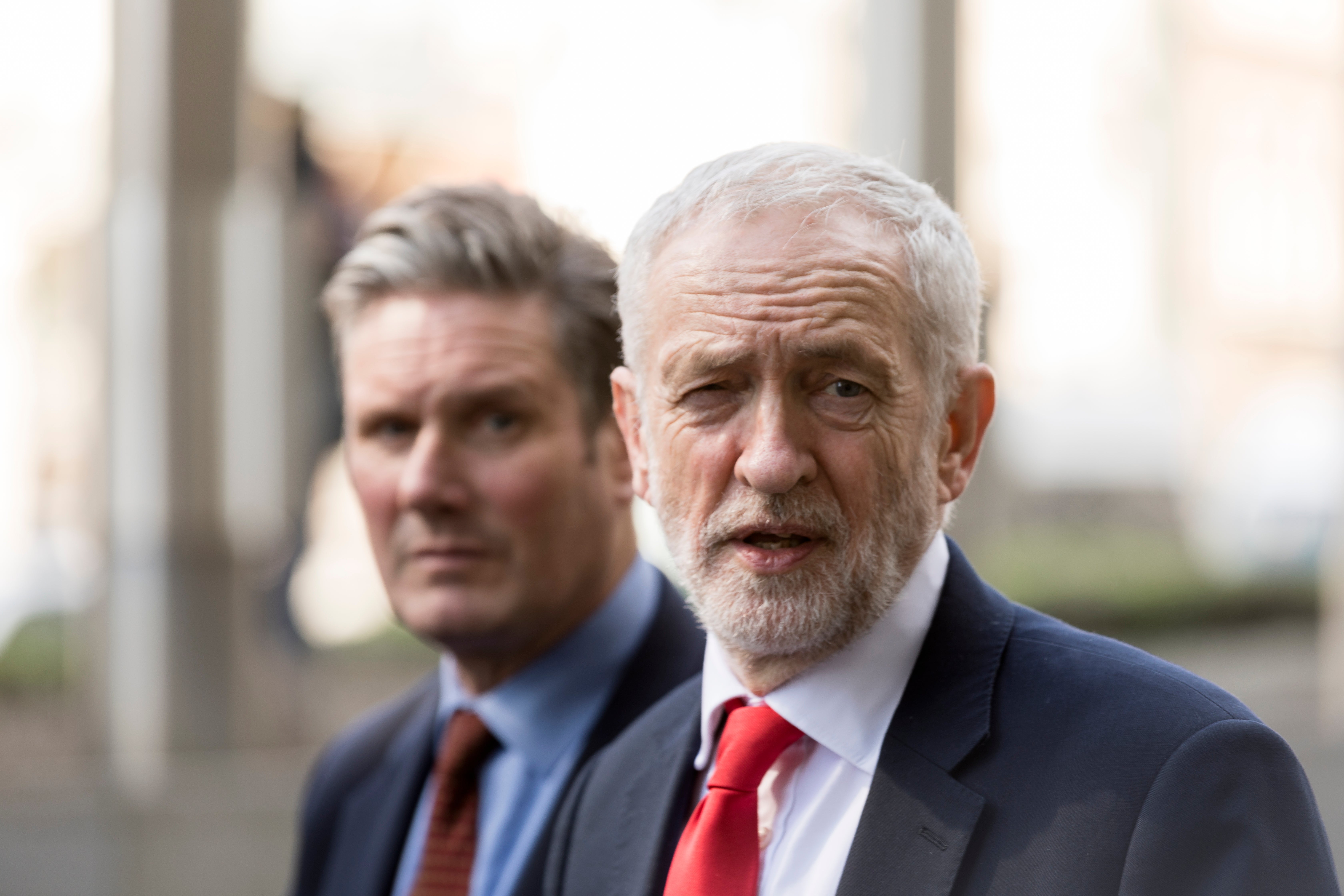Why Keir Starmer still can’t answer the Corbyn Question
There is no easy or ‘right’ reply as to why the Labour leader supported his disgraced predecessor for years, writes Tom Peck. The only question now is will it affect him at the general election?


Keir Starmer’s only even remotely difficult moment of his party conference came after it had finished. The traditional round of broadcast interviews that followed his triumphant conference speech were significantly less of a triumph.
He has, over the last three years, done well at avoiding the “Corbyn Question”. Accusations that he fought to make Jeremy Corbyn prime minister could easily be brushed off by pointing out that he later kicked him out of the party. But the current appalling events in Israel and Gaza have made that question rather more difficult.
Starmer was asked by Sky News’s Beth Rigby, several times, whether when he said, several times, in 2017 and 2019, that Jeremy Corbyn would make “a good prime minister”, did he really mean it?
And several times he failed to answer. He chose instead to talk about his instant and successful efforts to rip out antisemitism from the party by its roots. About how antisemitism was “the very first thing I spoke about” after becoming Labour Party leader. But it doesn’t really work.
He is, when compared to some of his contemporaries, not very skilful at not answering a question. That is to his credit as a human being, but possibly to his detriment as a politician.
To not even step one inch in the direction of the question being asked made life rather easier for Beth Rigby than she may be used to. “That wasn’t the question,” she said. “You haven’t answered the question.” So she just repeated it again. Those more skilled in the art of evasion have the nous to offer at least a whiff of a reply so as to not leave that comeback on the table.
It is not easy to know what he is meant to say. When he campaigned for Corbyn to become prime minister, when he said he would make a “good” prime minister, did he actually mean it? He did it in two different elections, after all.
It’s a straight question – but he knows he can’t give a straight answer.
It is one of those dream questions so beloved of journalists, as they know both “no” and “yes” are equally damaging. (Arguably the best one ever was from ITV’s Paul Brand, when he asked Rebecca Long-Bailey to rate Jeremy Corbyn’s leadership “out of 10”. There were not merely two impossible answers to that question, but 10.)
The problem is, other people in the Labour Party really have answered it. In 2017, Stephen Kinnock and others were very happy to take part in a TV documentary that followed them around for months in the build up to the election. He thought nothing of saying, on camera, the words: “On 9 June, Jeremy will have to take a long hard look in the mirror. It will be a hard personal choice for him, I’m sure. That’s something that only Jeremy can do.”
Of course, what eventually happened was Kinnock being made to look utterly ridiculous. At 10pm on election night, there was a camera pointed at his face, which he had invited there, filming him as the exit poll came in, showing a result for his party unimaginably better than anyone had imagined – and him looking utterly devastated about it.
Kinnock accidentally answered Beth Rigby’s question in that moment. Yes, he had campaigned for Corbyn, but, no, he hadn’t meant it. Later, in the same documentary, he agreed to go on Sky News to do an interview, and his wife, the former Danish prime minister, had to tell him not to do it on account of the fact that he’d only said yes to try and be nice, and he didn’t have anything to actually say. There was, indeed, nothing that he could say.
Loads of them had campaigned for Corbyn, but not meant it. Loads of them had proceeded on the assumption that he couldn’t possibly win but would like to still be around after he’d lost. The unexpected closeness of 2017 was arguably the most significant factor in prompting the likes of Chuka Umunna, who could very easily be on the verge of 10 Downing Street now, to accidentally end his political career via two new parties and eventually the Liberal Democrats.
Was it a moral failure, on Starmer’s part, not to walk down this path, too? We don’t know the answer, because he can’t tell us. Or maybe he really did want Corbyn to win, especially given the alternative. But he simply can’t come out with the answer. And if there’s a question you can’t answer, you can be absolutely sure you’ll be asked it over and over and over and over again.
Will it matter? Probably not. In the end, voters only really get to make a binary choice. A cross in a box. The Corbyn Question is in the past and voters are a lot better than journalists at forgiving past transgressions and looking to the future. But questions politicians can’t or won’t answer do not go away.
The Liberal Democrats accidentally fought the 2017 election on the subject of whether or not gay sex was a sin, entirely because their leader Tim Farron declined every opportunity presented to him to just say the word “no” and make it stop.
For Starmer, the Corbyn Question is much harder than that, and it has just got significantly harder. It’s unlikely to tip the balance, but it’s not going to make for comfortable viewing in the year ahead.






Join our commenting forum
Join thought-provoking conversations, follow other Independent readers and see their replies
Comments